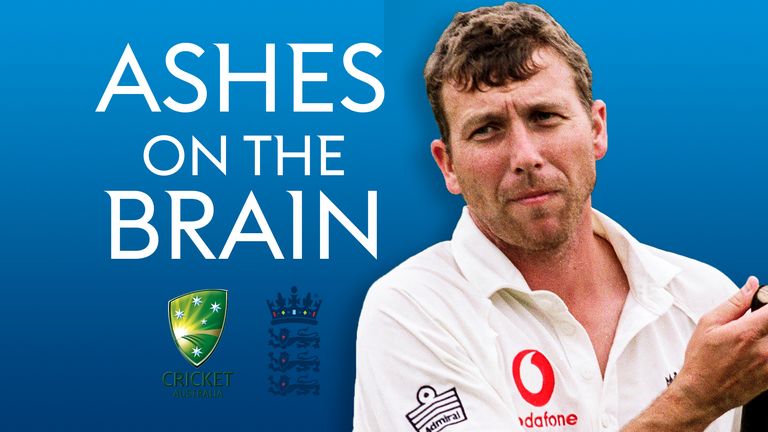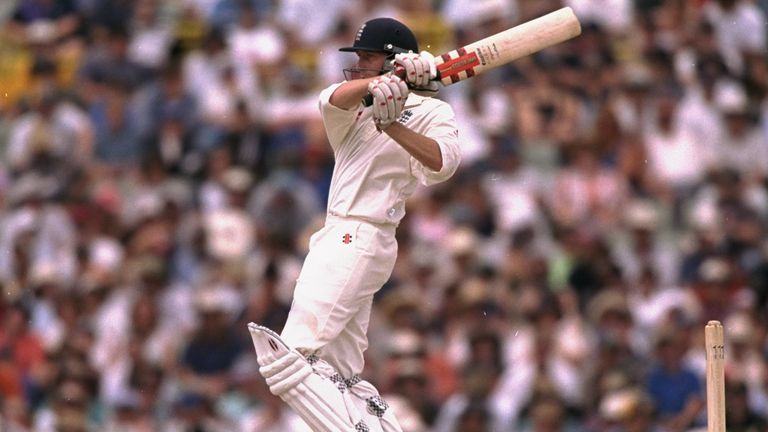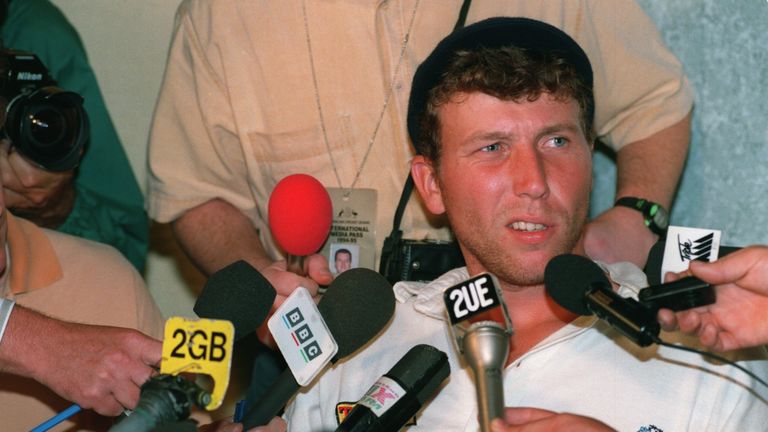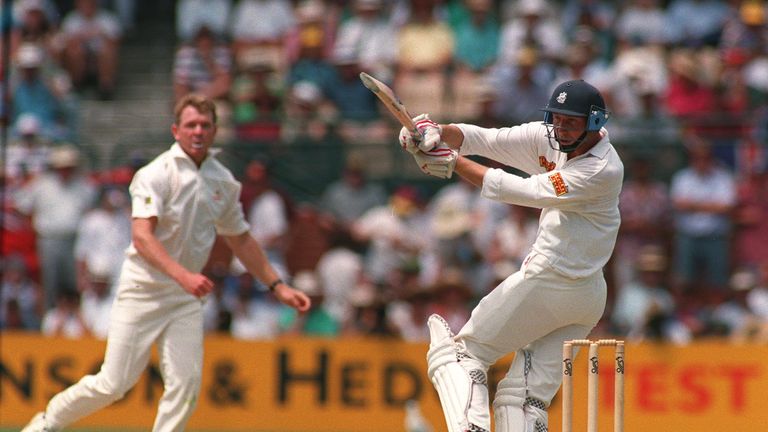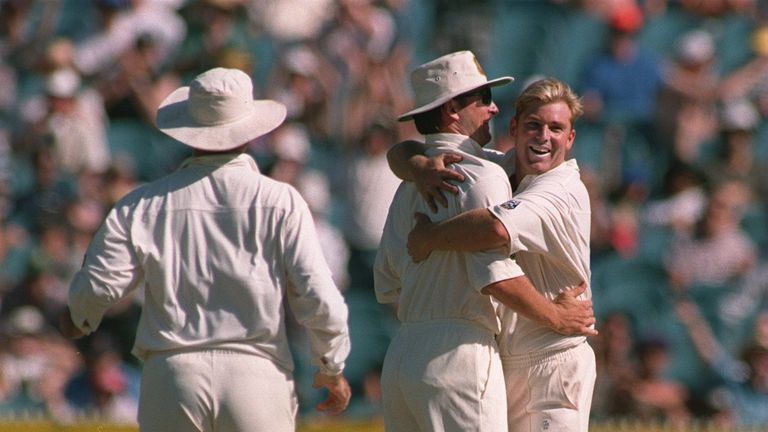Michael Atherton explains why Ashes contests are the 'greatest games' he played in
In part two of our Ashes on the Brain series, Michael Atherton explains the mental and physical challenges posed by a tour of Australia...
Wednesday 8 November 2017 09:51, UK
I would say it is the pinnacle of an England player's career getting selected for an Australia tour with the Ashes, the oldest and most historic series, at stake.
They used to be very long tours when I was playing, three or four months. You'd be playing not just the five Tests, you'd play all the state sides, sometimes you'd play them twice and you'd end up playing up-country games as well.
So it was a real, proper full-on tour - I mean, it's still a very significant tour but they're a bit shorter than they used to be and everything is crammed in so you don't quite get to see as much of Australia as you might once have done, but what a fantastic tour to go on.
Do you worry about being away for so long? Not if you're young! The first time I went I was 21 with no family or any of that kind of thing. It was just a fantastic opportunity, it's unbelievably exciting to go on a tour like that.
I suppose as you get older and you have a family, children and whatever, the length of a tour becomes more of an issue. But, as I say, these days tours are squashed anyway - there is very little cricket outside the international games.
That is just the way it has gone, it is a bit of a shame in some ways but it would be difficult to go back to a time when you played very long tours.
It is a pretty tough tour, Australia. I would say it is a hard tour in many ways. Physically there are big grounds, hot days and real hard physical toil for the bowlers, mentally quite a tough tour for the batsmen.
The press, generally, are quite pointed in Australia, too. They can be quite critical of England teams if it is not going well down there. You've got to try and put all that out of your mind, it's tougher now with social media and it is difficult for players to get away from all the noise. But that is what you've got to do.
The key thing is your team-mates, the captain, coach and what they're saying, not what everyone else is saying. So as best as you can, just try and put it out of your mind. But, you know, 100,000 on Boxing Day in Melbourne, it's a tough crowd and if it's not going well, then it's hard to deal with.
You also have the Australian players talking in the press but I never really bothered too much about that. The Glenn McGrath 5-0 thing just became a tradition, a bit of pre-series flannel really.
When I played we were playing against a pretty strong Australian team so they were always quite confident. I suspect this series will be quite a tight contest, two teams that have got strong points but also look a bit flawed as well.
You look at the opposition and you look at players you think are going to be dangerous. How can you neuter that threat? How can you counter that threat?
You are always looking at weaknesses and strengths and these days the amount of analysis done about players is far and away more than there was in my day when you might get the odd video tape and little bits of analysis but it is very, very detailed now and very specific.
There will be a lot of that kind of pre-planning done. I think the other important thing in Australia is that you've got to treat the warm-up games seriously while you're getting over your jet lag.
The conditions are different, the Kookaburra ball is different, the pitches are different, the kind of glare and the lights are different so you've got to treat those warm-up games seriously and try and play hard, tough cricket against what are usual some quite tough state sides.
As I say, we played against a strong side but you go into every game believing that you are good enough to win, you might be realistic and say 'we're second favourites' or whatever but absolutely you go into every game trying to compete from the very first ball and try and put the opposition under pressure.
That doesn't change whoever you're playing against really. In my time, we were just playing against a very good team, it was a privilege in some ways to play against a team like that, some of the greatest players to have played the game like Shane Warne.
They generally had the better of us and that is just how it goes.
I think you are aware that an Ashes series is bigger than other series, for all the obvious reasons: history and hype. They seem to get bigger with every year, more hype, more hype. But, at the end of the day, when you go out there I don't think you feel much different.
There is obviously, when you're walking out, maybe 100,000 on Boxing Day and 60,000 at Sydney so there might be that atmosphere that might make it feel different but when the bowler's running up and you're waiting to bat or if you're bowling the ball, you don't really feel any different.
You're just aware that these are the greatest games that you'll play in. An Ashes series in Australia, it doesn't come any bigger or better than that.

